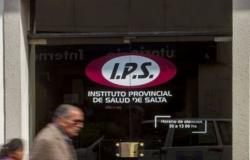With the presence of university authorities from the Faculty of Economic, Legal and Social Sciences of Unsa, students, legislators and provincial officials, the Minister of Economy and Public Services, Roberto Dib Ashur, presented this Monday at the academic level the project “New Regime of Federal Co-participation”.
With the presence of university authorities from the Faculty of Economic, Legal and Social Sciences of Unsa, students, legislators and provincial officials, the Minister of Economy and Public Services, Roberto Dib Ashur, presented this Monday at the academic level the project “New Regime of Federal Co-participation”.
Among the objectives, the challenge of achieving homogeneity in the contributions that go to the Argentine provinces stands out, considering that Salta is one of those that receives the least co-participation.
“In the search for a more homogeneous Argentina, we are working on the constitutional mandate of 30 years ago, since 1994, which was not fulfilled. We propose a new regime that is supportive, that generates an equivalent degree of development, quality of life and equal opportunities throughout the national territory, with objective distribution criteria,” highlighted Dib Ashur at the beginning of the presentation.
Regional development
At another time he explained that moving forward with an equivalent degree of development means optimizing routes, air, digital and energy connectivity; quality of life: through reducing Unmet Basic Needs (UBN), life expectancy, maternal and infant mortality; and equal opportunities: achieve greater educational completion and higher studies.
In addition, he added that for Salta to be able to provide this partnership, it is essential to improve energy, routes, carry out water works and road, rail, air, and digital connectivity. “This will allow us to make our corridors attractive and competitive, so that going to the port will not be so expensive, because the distance we have in a country as large as this makes it restrictive to produce here, therefore, we want to advance in the departures to Paraguay, Bolivia, Chile, where our trade can flow without necessarily having to travel 1,600 kilometers to Buenos Aires and thus add value to Argentina: today is a favorable moment for that,” he stated.
Regarding the origin of the funds, he maintained that they can come from the return of the income tax, the country tax or the check tax.
It is worth mentioning that in this first stage the proposal was developed at an academic level, but later it is intended to reach legislative and national bodies.






